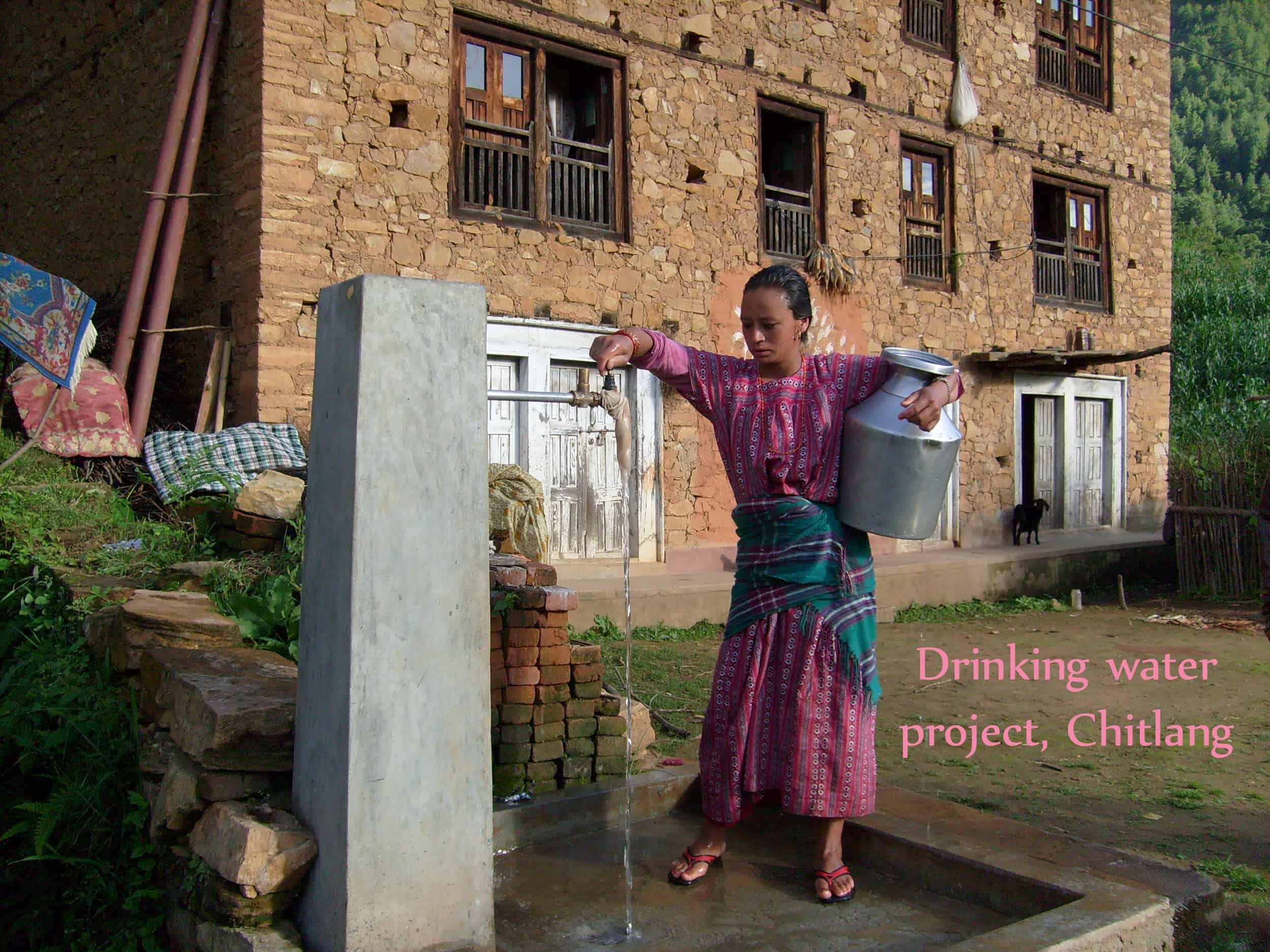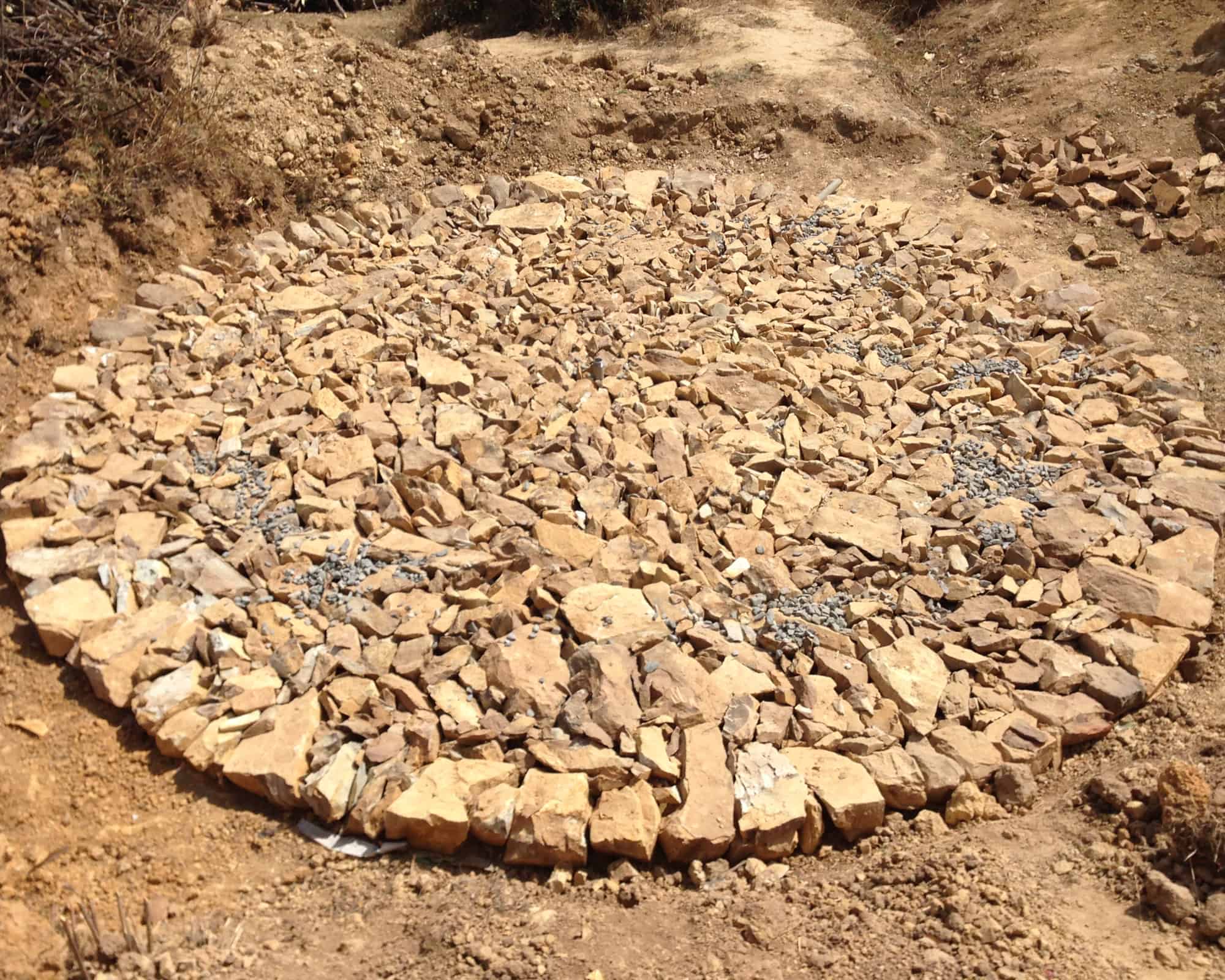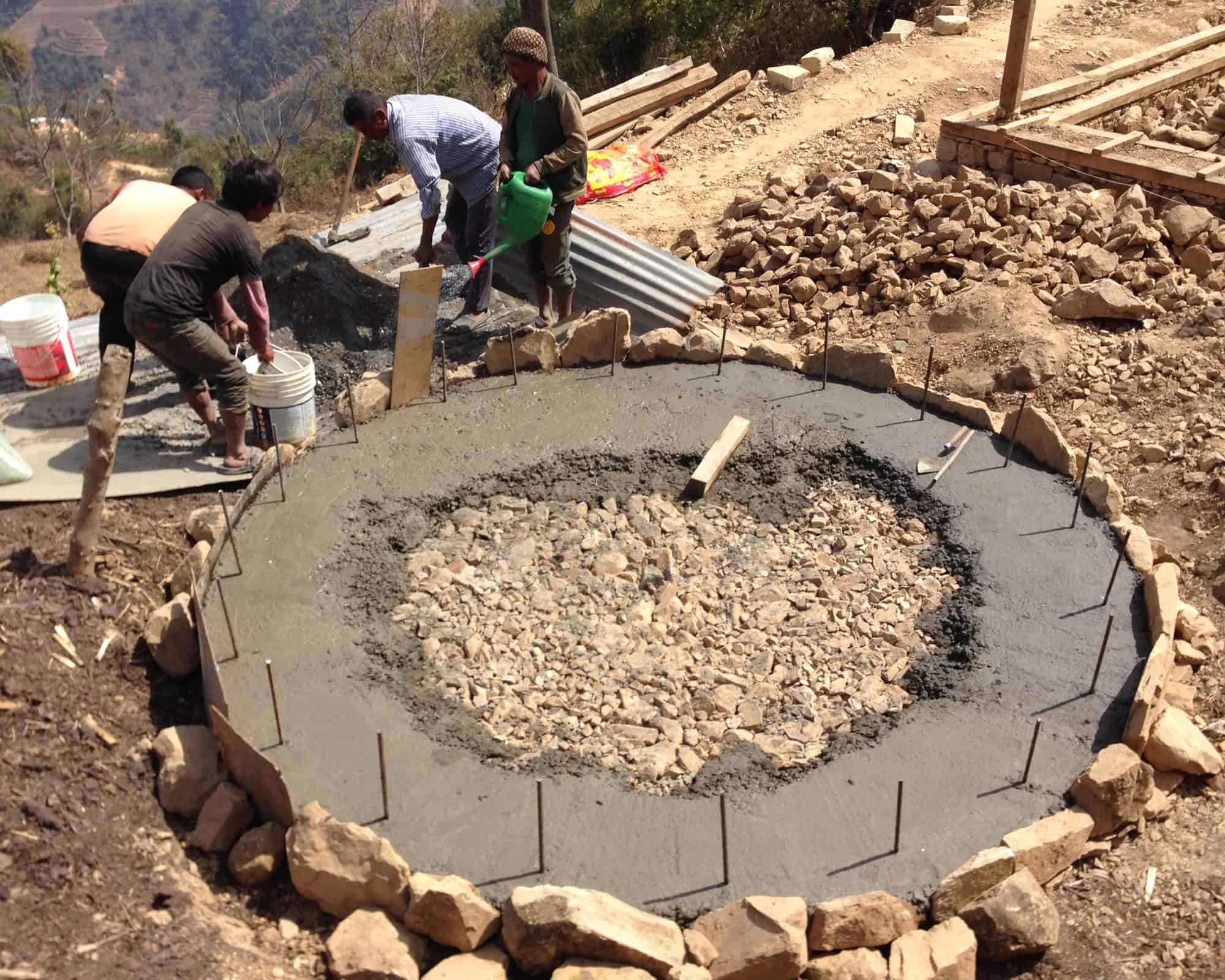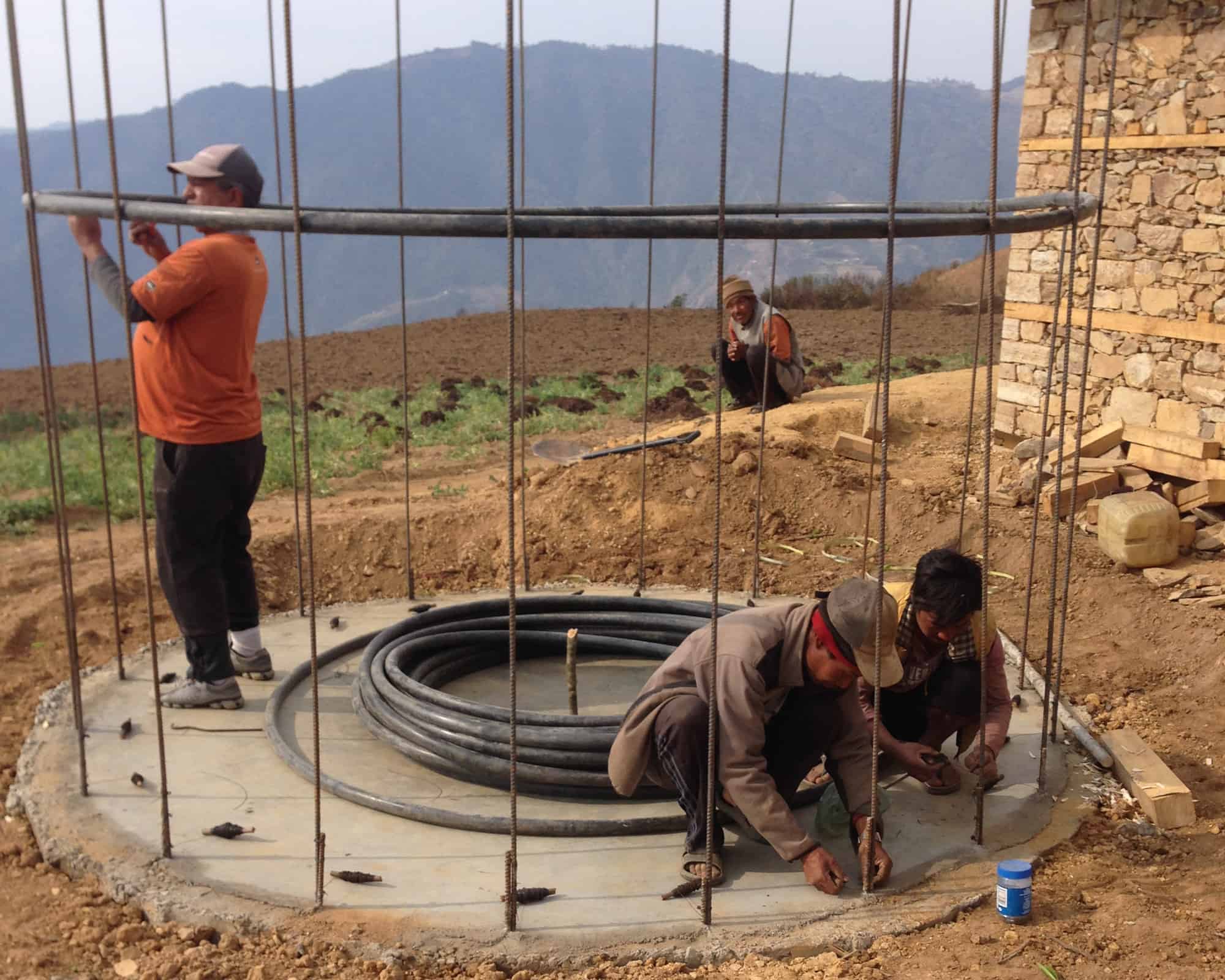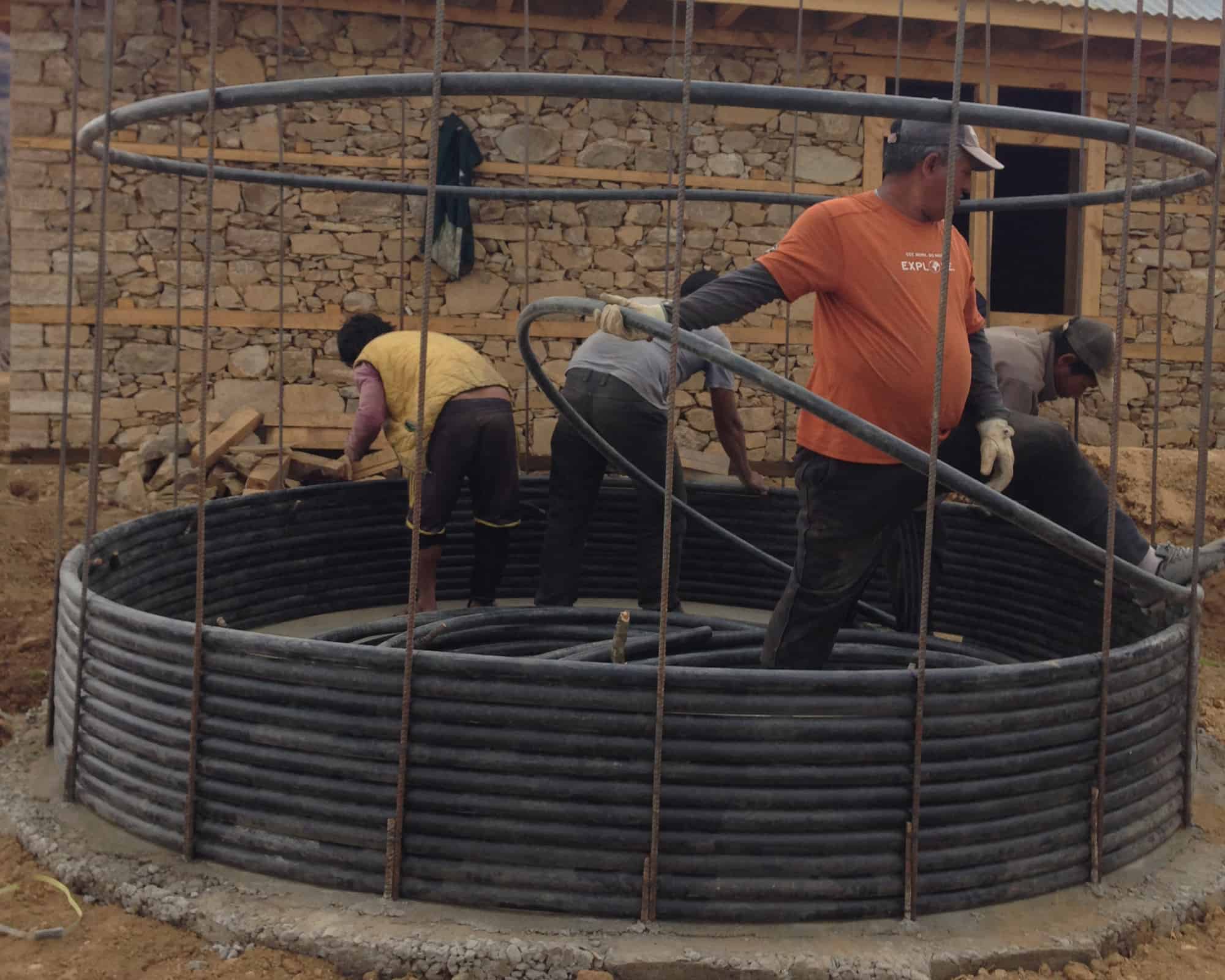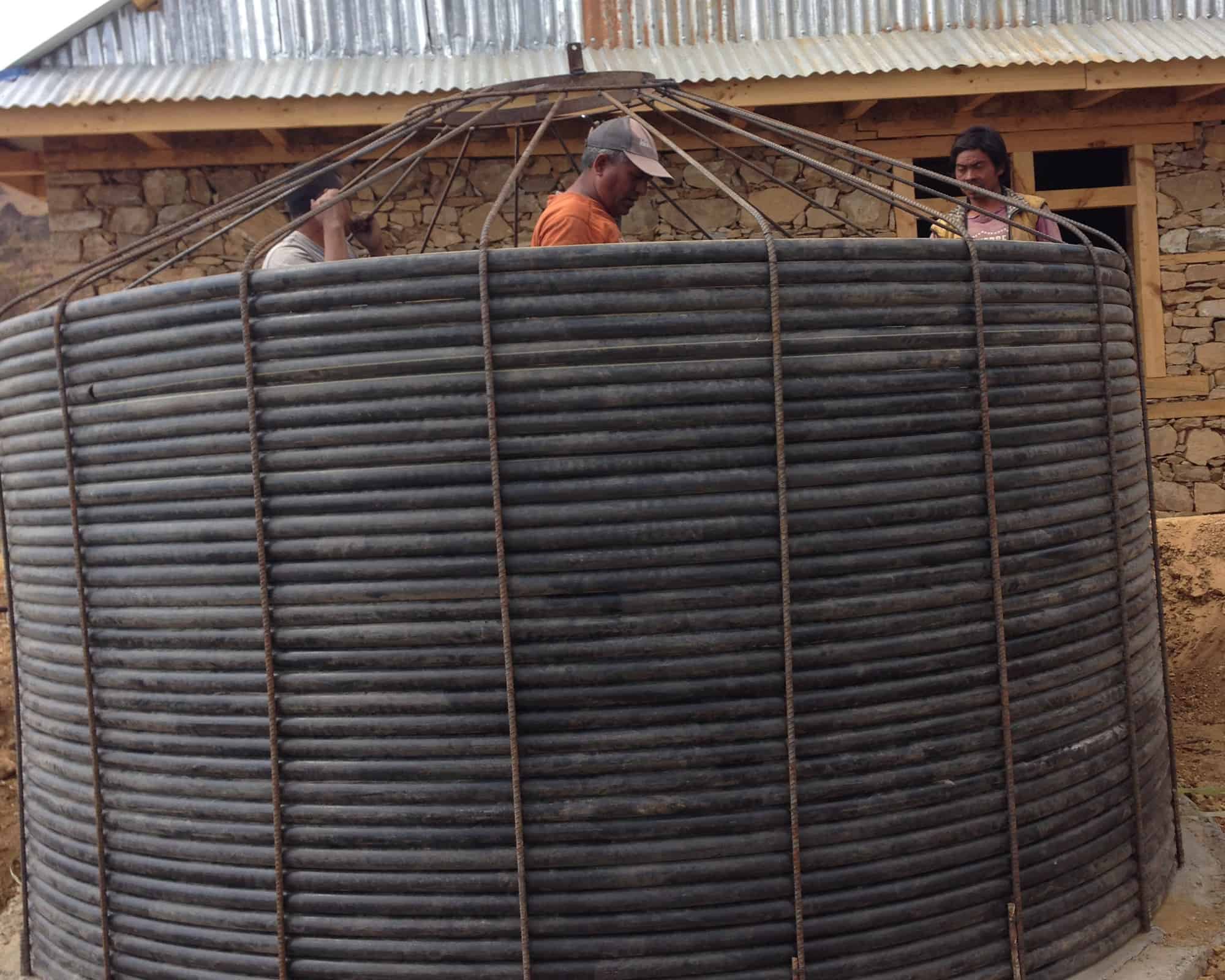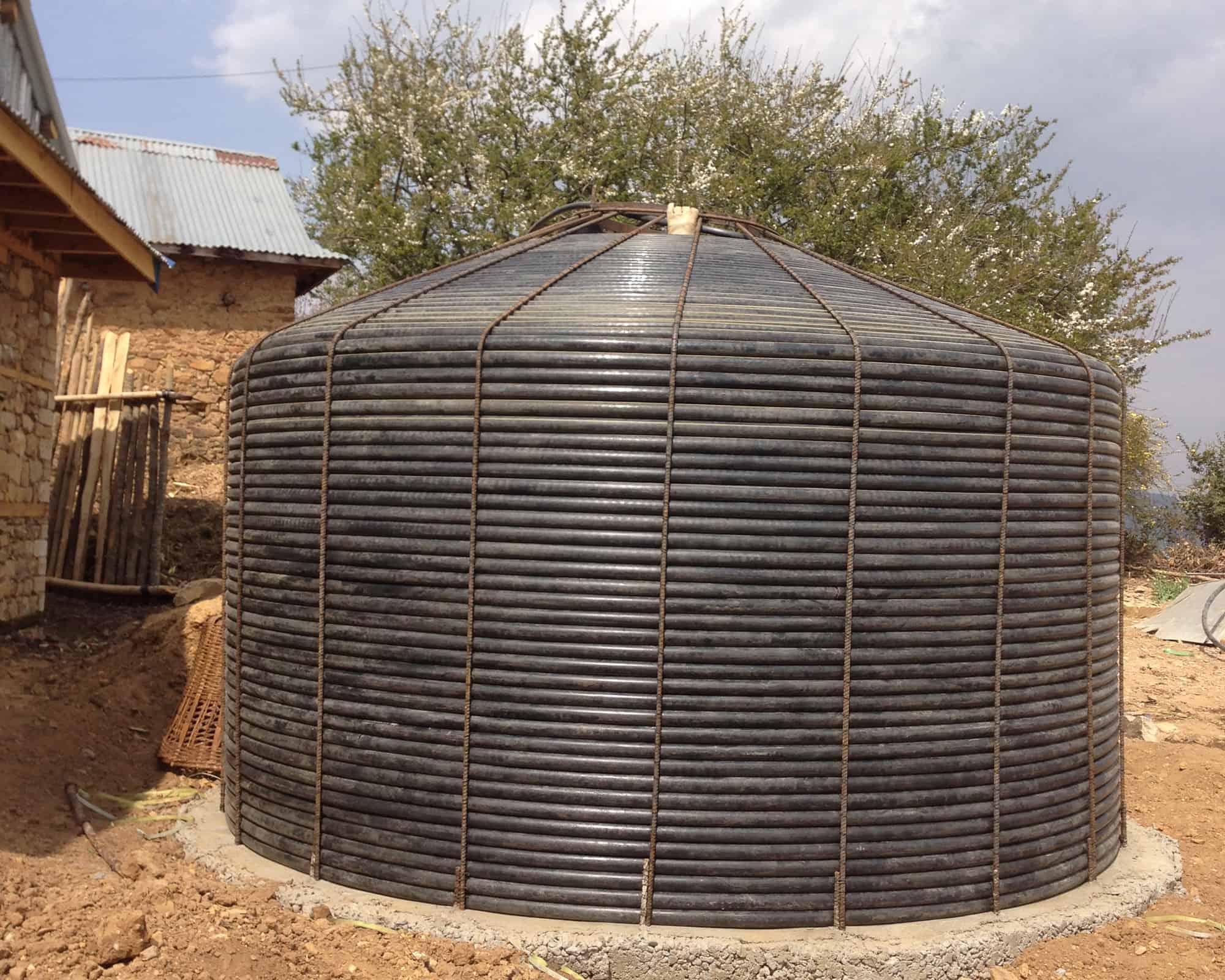Many people in Nepal must walk long distances over rugged terrain to access water for cooking and cleaning, often from contaminated sources. The task often falls to women and children. Nepal SEEDS helps villages construct piped water systems that bring clean water direct from springs to homes. Because project recipients are involved in planning, construction, and maintenance, Nepal SEEDS’ water projects are sustainable; the first one built in 1999 is still functioning today. Village residents adapt systems to serve other needs, for example by channeling excess water into garden plots for growing vegetables year-round. Villages and schools where Nepal SEEDS provides water projects also receive assistance to build composting toilets and biogas units. The combined effect improves health and sanitation while reducing deforestation and the time spent fetching water from distant sources.
Nepal SEEDS has constructed water systems in Bhorle (Rasuwa District), Chitlang, Sisneri, and Fakhel (Makwanpur District), Mathurapati (Kavre District), and Pharping (Dakshinkali Municipality). Each system services approximately 200 people.

